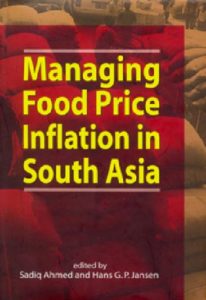 South Asia, home of 1.5 billion people and constituting one fifth of the world’s humanity, is a talked about region for a variety of reasons. It has eight countries with varying size and importance – ranging from vast India of more than one billion people to tiny Indian Ocean island nation of the Maldives of only few hundred thousand. The region has both achievements and negativities. As two of the regional countries have made somewhat spectacular progress in some areas and even have become the rare nuclear power, South Asia has also the largest number of poor in the world. Even India and Pakistan – two neighbours possessing atomic power – have to watch rather helplessly the presence of big number of hapless people who are mired in abject poverty. Other countries of the region are also afflicted by this menace, but undeniably the issue is bigger for India and also to an extent for Pakistan because of their size and number of the population.
South Asia, home of 1.5 billion people and constituting one fifth of the world’s humanity, is a talked about region for a variety of reasons. It has eight countries with varying size and importance – ranging from vast India of more than one billion people to tiny Indian Ocean island nation of the Maldives of only few hundred thousand. The region has both achievements and negativities. As two of the regional countries have made somewhat spectacular progress in some areas and even have become the rare nuclear power, South Asia has also the largest number of poor in the world. Even India and Pakistan – two neighbours possessing atomic power – have to watch rather helplessly the presence of big number of hapless people who are mired in abject poverty. Other countries of the region are also afflicted by this menace, but undeniably the issue is bigger for India and also to an extent for Pakistan because of their size and number of the population.
One of the main problems in south Asia is managing the food sector and this is inextricably linked with the broader issue of poverty. Two celebrated economists of the region, Nobel Laureate Professor Amartya Sen of India and Pakistan’s late Dr. Mahbubul Haq have highlighted the linkage between poverty and hunger as a combining factor for prevalence of the curse of poverty in the region.
It is in this context, any subject relating to food and hunger is of particular importance to South Asian region because of obvious reasons. “Managing Food Price Inflation in South Asia” is definitely an issue that forms the part of this wider perspective. Sadiq Ahmed and Hans G P Jansen have done a commendable job by editing a publication essentially and almost entirely on this issue.
Admittedly, the subject is complex, its significance and special meaning for South Asia notwithstanding. It is quite intricate because of its technicalities and the matter is understandable and appreciated mainly by those having knowledge and ideas in the relevant fields. However, the articles contained in the books are quite interesting even to the naives having scant appropriate thoughts about the matters contained in the book. This is one good aspect of the publication since the articles are more or less readable for those not-so-conversant with the subject.
Evidently, South Asia’s main concern is feeding the vast multitude living in the region and the issue of access of common people to the food has quite seriously been taken by the regional forum south Asian Association for Regional Cooperation (SSARC).The last SAARC summit in Bhutan dealt on this and the coming summit in Maldives will also deliberate on this critically important area.
The book examines various characteristics of the issue of food price inflation in South Asia and its management with a clear priority attached to the subject. It takes up individual countries for a detailed evaluation and mentions the reasons for such inflation and also the remedial measures. The articles particularly highlight the perilous situation in the form of surge in the food prices in 2007-2008.
Both Sadiq Ahmed and Hans G P Jansen have worked with the World Bank with the key responsibilities for dealing with critical economic and social issues in South Asia. Their experiences are definitely valuable in this field and the articles either written or edited by them should be considered as invaluable documents. The articles dealt with the regional countries including Afghanistan and Bangladesh also figure prominently. The contributors are also experienced with wide knowledge. However, some countries like Bhutan and the Maldives seem to have received too little attention .Of course, their size and number of population could be a factor here, but could still attract bigger attention.
The 290-page publication by the university press limited reads well with an attractive cover and flawless printing. It contains plenty of information andfigures that are very useful for researchers and others dealing with the relevant issues.
zaglulbss@yahoo.com






